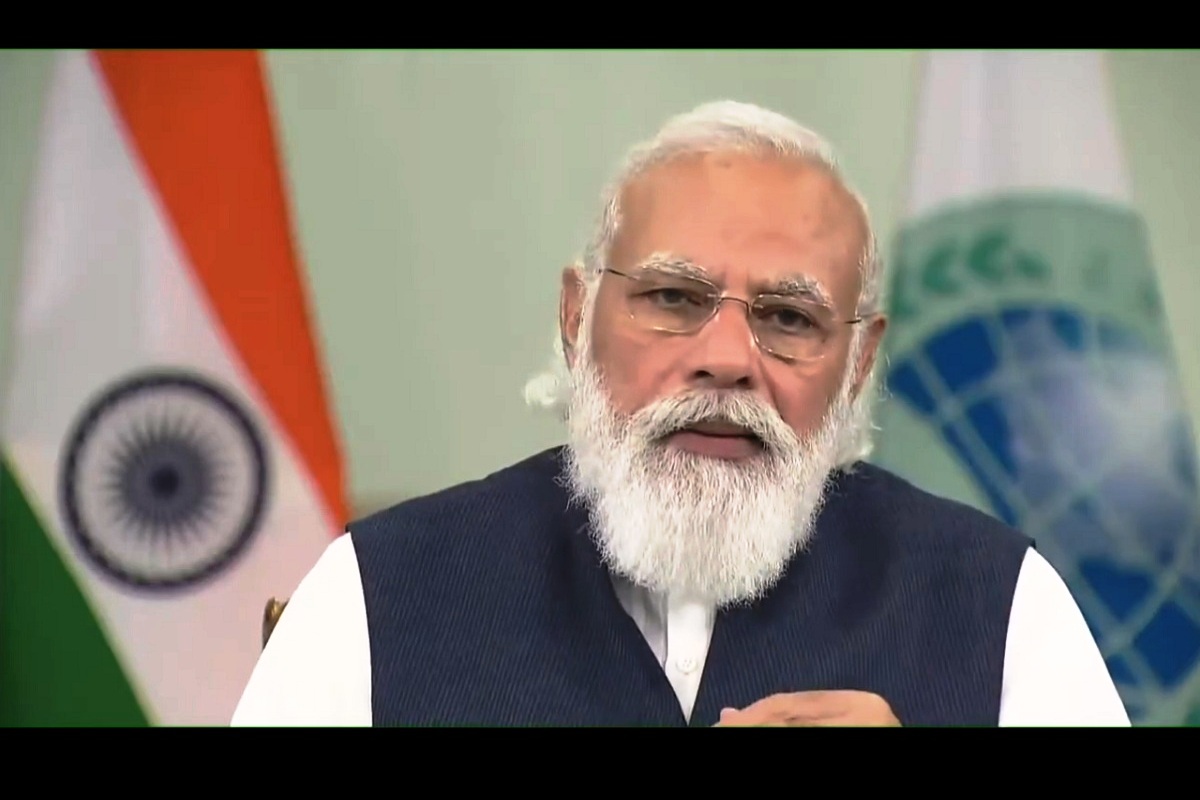Afghanistan: WHO reports surge in acute respiratory disease
According to the WHO report, more than 206,000 people were infected with respiratory diseases during this period, out of which 506 lost their lives.
Addressing virtually the SCO Summit being held in Dushanbe, he said the biggest challenges facing the regional grouping on its 20th anniversary were related to peace, security and trust-deficit and the root cause of these problems was increasing radicalisation.

(Image: Twitter/@narendramodi)
In the backdrop of the takeover of Afghanistan by the Taliban, Prime Minister Narendra Modi today called upon SCO (Shanghai Cooperation Organisation) countries to develop a strong network in the region between moderate, tolerant and inclusive institutions and traditions associated with Islam.
And in a veiled criticism of China’s ambitious Belt and Road Initiative (BRI), he said any connectivity initiative should not be a one-way street.
Advertisement
Addressing virtually the SCO Summit being held in Dushanbe, he said the biggest challenges facing the regional grouping on its 20th anniversary were related to peace, security and trust-deficit and the root cause of these problems was increasing radicalisation. ”Recent developments in Afghanistan have made this challenge more apparent. SCO should take an initiative on this issue,” he said in his six-minute address.
Advertisement
The current members of SCO are China, Kazakhstan, Kyrgyzstan, Russia, Tajikistan, Uzbekistan, India and Pakistan. Afghanistan, Belarus and Mongolia have observer status with SCO, while its dialogue partners include Armenia, Azerbaijan, Cambodia, Nepal, Sri Lanka and Turkey.
Noting that Central Asia has been a bastion of moderate and progressive cultures and values and traditions like Sufism have flourished in the region over the centuries, Modi said, ”We can still see their influence in the cultural heritage of this region. On the basis of this historical heritage of Central Asia, SCO should develop a common template to fight radicalisation and extremism.”
Modi went on to say that fighting radicalisation was not only necessary for regional security and mutual trust, but also for the bright future of younger generations. To compete with the developed world, the region has to become a stakeholder in emerging technologies. For this, there was a need to encourage talented youth in the region towards science and rational thinking.
The Prime Minister regretted that the vast economic potential of the region has remained untapped due to radicalisation and insecurity, be it mineral wealth or intra-SCO trade. He emphasised the need for mutual connectivity among SCO countries to take full advantage of the mineral wealth. ”The role of Central Asia in history has been that of a connectivity bridge between major regional markets. This was also the basis of the prosperity of this region. India is committed to increasing its connectivity with Central Asia.”
Modi said the land-locked Central Asian countries could benefit immensely by connecting with India’s vast market. ”Unfortunately, many connectivity options are not open to them today due to lack of mutual trust. Our investment in Iran’s Chabahar port and our efforts towards the International North-South Corridor are driven by this reality,” he added in an oblique reference to the fact that Islamabad does not allow India to transport its goods to Afghanistan and Central Asia through Pakistan’s territory.
The Prime Minister also took a dig at China for going ahead with the China-Pakistan Economic Corridor (CPEC), a flagship project of BRI, ignoring India’s contention that it runs through Indian territory illegally occupied by Pakistan. ”Any initiative on connectivity cannot be a one-way street. The connectivity projects should be consultative, transparent and participatory to ensure mutual trust. In this regard, respect for the territorial integrity of all countries should be implicit. Based on these principles, SCO should develop suitable norms for connectivity projects in the region,” he said. Connectivity projects should connect the region and not increase the distance between them, he observed.
Advertisement